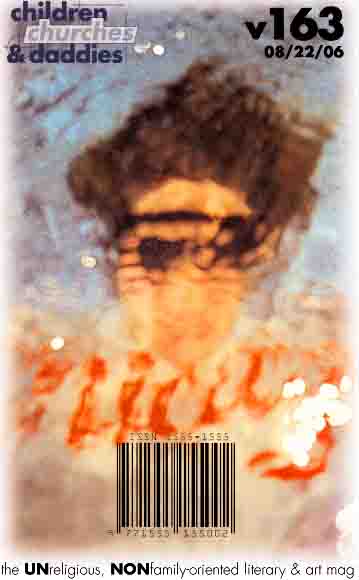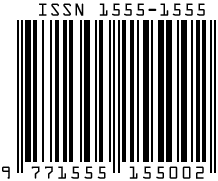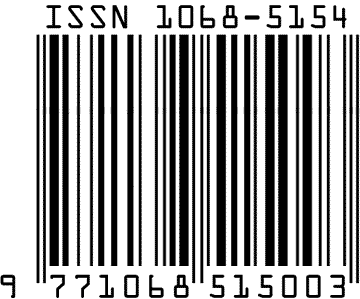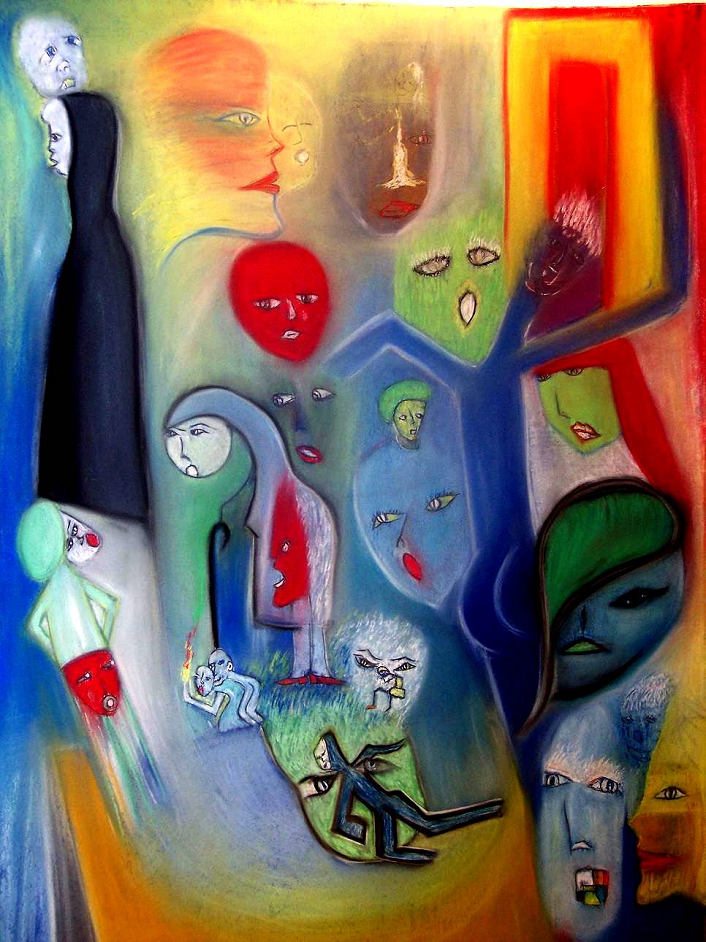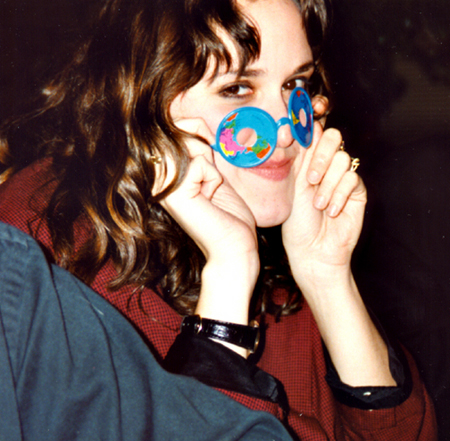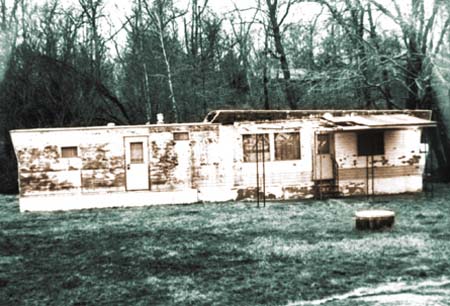THE CONVENT
Mel Waldman
ACT 1

SCENE 1
The analyst sits on a black leather chair (downstage center) behind and left of a white psychoanalytic couch. (The analyst, chair, and couch face the audience.) He is alone in his private office. A few minutes ago, the patient for this hour cancelled. And his former colleague’s lover called to tell him his old buddy committed suicide. The next patient is due in 50 minutes.
CHARACTERS:
The Analyst: A A
A The Convent was infested with evil spirits. There should have been an exorcism. Jack and I knew this. But there wasn’t. So I left before it killed me. Jack stayed behind. He wanted to save lives. I wanted to save my own. The day I left, I got ill. The palpitations began. Thought I was in heart attack country. I wasn’t. Just free. Until I got the call. It’s quite simple. My former colleague and dear friend- Dr. Jack Kellerman-committed suicide. Anne, his live-in lover, just called and told me. Apparently, Jack’s patient overdosed a few days ago. Didn’t die. Son-of-a-bitch is still alive. Gonna make a full recovery. Yet Jack blamed himself. So deeply hurt that... It’s simple. It makes no sense. There must be more. Of course, it’s the Convent! Yeah. You see, the Clinic exists inside a very old building-used to be a convent. Jesus! What happened there-before we arrived? And after? I must confess! One by one, we died! Why? I’m a shrink! Not an exorcist! So I left. (The analyst becomes very agitated and disoriented. He sails into a seizure or... His heart pounds rapidly. His chest...!) Forgive me! Forgive me, Jack! Forgive me! The Convent! The freakin’ Convent! Forgive me, Jack! Should have forced you to leave too. It’s fuckin’ evil! You hear me, Jack? I must confess! I killed you! I fuckin’ killed you! (The analyst whirls around and around and collapses on the couch. Blackout!) The Convent was infested with evil spirits. There should have been an exorcism. Jack and I knew this. But there wasn’t. So I left before it killed me. Jack stayed behind. He wanted to save lives. I wanted to save my own. The day I left, I got ill. The palpitations began. Thought I was in heart attack country. I wasn’t. Just free. Until I got the call. It’s quite simple. My former colleague and dear friend- Dr. Jack Kellerman-committed suicide. Anne, his live-in lover, just called and told me. Apparently, Jack’s patient overdosed a few days ago. Didn’t die. Son-of-a-bitch is still alive. Gonna make a full recovery. Yet Jack blamed himself. So deeply hurt that... It’s simple. It makes no sense. There must be more. Of course, it’s the Convent! Yeah. You see, the Clinic exists inside a very old building-used to be a convent. Jesus! What happened there-before we arrived? And after? I must confess! One by one, we died! Why? I’m a shrink! Not an exorcist! So I left. (The analyst becomes very agitated and disoriented. He sails into a seizure or... His heart pounds rapidly. His chest...!) Forgive me! Forgive me, Jack! Forgive me! The Convent! The freakin’ Convent! Forgive me, Jack! Should have forced you to leave too. It’s fuckin’ evil! You hear me, Jack? I must confess! I killed you! I fuckin’ killed you! (The analyst whirls around and around and collapses on the couch. Blackout!)
CURTAIN
ACT 1
SCENE 2
A few seconds later, the curtain rises rapidly. The analyst leaps off the couch, whirls and twirls and stops suddenly. He gazes at the audience:
A Guilt sucks! Death sucks too! Resurrection! Hallelujah! I’m alive! Just kiddin’, Jack. Didn’t kill you. The Convent did. Life’s my thing. My only thing. Goodbye! (He turns around and walks off-stage.) Guilt sucks! Death sucks too! Resurrection! Hallelujah! I’m alive! Just kiddin’, Jack. Didn’t kill you. The Convent did. Life’s my thing. My only thing. Goodbye! (He turns around and walks off-stage.)
CURTAIN



In And Out Of Siege, art by Aaron Wilder


DANTE’S FUGUE
Mel Waldman
They lived in an old country house in upstate New York, the perfect family of five. Dante was a young, blond detective standing six-feet-six, married to Maria, only five feet tall, long jet-black hair flowing down her small torso. They had two sons and one daughter ages 3, 5, and 8, named John, Michael, and Elizabeth. John and Michael had his azure eyes. Elizabeth had her mother’s dark brown eyes.
Every night he hid his guns in the attic, on the top shelf of the creaky closet, in the dark crevices. All his guns were there, including his throw-away. The children were never allowed in the attic. And if they entered surreptitiously, they were too small to reach the inaccessible weapons. The old country house was a safe place for Dante’s family.
But one day in June 2006, Dante vanished after leaving the police station, wearing his gun and his throw-away hidden on his body. It was the first Tuesday of the month. And it was Elizabeth’s birthday. But he never made it home.
After a few days passed, Maria filed a missing persons report.
A week later, in the middle of the night, he returned, reeking of liquor, and suffering from amnesia. The week that had passed was dead-a corpse of emptiness lying in a black coffin abandoned in a wasteland he could not find. He was dead too-for it seemed his soul had been sucked out of his being by evil spirits.
Before climbing the stairs, he made the sign of the cross. Then his mind went blank again, drifting off to a soulless wilderness.
He visited Maria first, followed by Elizabeth, and then the boys. The explosions were rapid and relentless-fierce, furious, and final, occurring in less than a minute as he rushed from room to room with absolute madness and intoxication.
Afterwards, he staggered down the stairs, drifted into the kitchen and drank Scotch. A lot of Scotch.
Lost in his wasteland of alcoholism, his depraved mind believed his daughter Elizabeth, still alive in his bleak desert, was the devil. Her birthday was on June 6, 2006. And although he never saw the 3-6’s on her body, he knew they were there. For one drunken night, he found them on Maria’s body-or so he thought. Maria was the devil! And she gave birth to Elizabeth, Michael, and John. So they were the devil too.
This alcoholic wasteland was Dante’s Inferno. And he was burning in Hell. His mind and body were on fire. There was no escape, until he pulled the trigger, eating his gun and releasing himself from the devil named SCOTCH and the horrific images of his beloved family.


Wishing
Pat Dixon
Moira Cavendish stared into her bathroom mirror, half aware that the fluorescent bulbs on either side were washing out her color.
A seventy-two-year-old woman stared back at her, appraising her face—its wrinkles, its thin mixture of curly white and black hairs, its tired eyes, its turned down mouth with half a dozen scattered whiskers below it on her chin.
“I wish my mother were dead,” Moira whispered. “I wish—I wish—I wish . . . .”
Clearing her throat with two little coughs, Moira sat on the side of the bathtub, her cell phone in her left hand, and carefully pressed the number of the New Jersey senior living facility that she called every morning around 9:30 a.m.
“Hello?” said a shaky, cracking voice. “Who is it?”
“Hello, Mother!” said Moira in a loud, cheery voice. “It’s me—Moira—your daughter!”
“I’m almost ready to start gettin’ myself up,” her mother replied. “What’s new—with you?”
“I’ve got my tickets, Mother! I’ll be down from Boston next Tuesday to spend your birthday with you—for a whole week! We’ll call it your birth-week!”
“My birthday is coming up? When is that?”
“Next Thursday, Mother! You’ll be ninety-five! How do you feel today?”
“How do I feel? How should I feel? I feel tired—and wor’ out. You would too!”
“But no worse than—yesterday? Some days I feel pretty tired myself, Mother. I guess that’s just—just life, hunh?”
“I—I’m havin’ my hair done at two o’clock today, so I better get started soon, gettin’ myself up.”
“Are you sure, Mother? You said yesterday that you were havin’ your hair done.”
There was a long pause, during which Moira counted to fifteen.
“Mother, do you want me to phone the hairdresser for you to check?”
“No—I’ve got it written down—some place.”
“I’ll be happy to phone. Why don’t I call you back in an hour or so to check if you’ve found where you wrote it down?”
After a seven-second pause, her mother replied, “That would be nice. We could talk again. What are you doing today?”
“Well—I’m going to the grocery market—an’ the shoe store—an’ the vet’s to get some more prescription cat food for Tessy, our ol’ cat—an’ probably go to the bank. An’ I’ll make some nice chicken soup for lunch—an’ get some salmon ready to have for supper. An’ I’ll scoop out the cat pan a couple more times—an’ do a load of laundry—maybe two loads—an’ a bit o’ work for the church.”
“Sounds like a pretty full day. How is—how is—how is—how is—your husband?”
“Floyd’s fine, Mother. He’s out in the yard now, out havin’ a bit of a smoke, I think, but he sends his love to you, too, Mother.”
“Well—I send my love back at him. I’ve always liked—I’ve always liked—your husband. Tell him I send my love.”
“I will, Mother! We both love you, too!”
“An’ love to your kitty—an’ to you, too—daughter.”
“I’ll talk to you later today, Mother. Bye for now! Love you!”
“Bye—love you.”
After rinsing her face, Moira stood next to the back door watching Floyd have his fifth or sixth cigarette.
When he had sucked it down to its filter, he flicked the filter into the high grass of the back lawn and turned to see her.
“Hey, Moira. How’s your mum? Any worse? Any better?”
“Just the same ol’ stuff, Floyd. I’ll be givin’ her hairdresser a bit of a call in a couple o’ minutes and then callin’ Mum again t’ straighten out what she’s doin’ today—or is not doin’.”
“Sheesh, Moira. Couldn’t you just let it ride f’ once? So your mum misses some dang appointment—or shows up without one—what’s the big whup? Am I workin’ for the phone company? D’ you know what these calls cost us? Every dang day?”
“D’ you know what it’d cost to move her up here? Or move her in with us? Or hire a ‘girl’ t’ spend eight hours a day with her?”
He lit another cigarette, deeply inhaled, and slowly blew the smoke upwards.
“You usin’ the car t’day?” he asked.
“I’ve got my errands. An’ I’ve got work at St. Michael’s Thrift Shop later today. Why?”
“I noticed we’re running low on Bud. Three or four more cases would be very greatly appreciated, if you’d be so good. Ask ’em t’ set the cases into the car for you. I don’t want you liftin’ ’em with your—your bad back an’ shoulder. I can lift ‘em into the house when you get home.”
“An’ what are your plans t’day?”
“Oh, I thought I’d just—I was thinkin’ I’d just slack off a bit t’day. Maybe watch the ball game on the TV this afternoon. Maybe have one or two o’ the neighbor fellas in, if they’re free. Ol’ Dennis was feelin’ poorly Sunday, an’ watchin’ a ball game just might be the ticket to improve his spirits.”
“That an’ havin’ three or four of our beers?”
Floyd studied the cigarette in his hand, took a final drag off it, and flicked it in the direction of over seven thousand other cellulose filters that gave their backyard the appearance, on moonlit nights, of a reflection of the starry sky.
“I don’t think there’s any call to be snippy an’ pickin’ on poor Dennis, now. We happen to be a little better off than Dennis is, an’ I think it behooves the likes of us t’ do what we can. If Dennis was better off, I’m certain he’d be keepin’ up more than his end o’ things.”
“An’ Bobby? An’ Ralph? An’ Simon? An’ some others who shall be nameless?”
“Now, now, Moira, we can’t be responsible for the global problems o’ the world, can we? But we can try to make things a bit better for them as is local, if it’s within our powers an’ means t’ do so. It’s just the Christian-like thing to do, say I.”
Moira, her arms hanging at her sides, clenched her right fist and then her left, wincing as her finger joints pained her.
“I’m going to make that little call down to Mum’s hairdresser now,” she said. “My mum—an’ all her problems—is my responsibility—for now at least.”
Floyd shrugged and lit another cigarette.
In the bathroom again, Moira pressed the phone number for her mother’s hairdresser.
“I wish,” she repeated softly, “—I wish my mother were—dead. An’ then I wish—an’ then—an’ then I’ll finally be free—finally—just—t’ go in peace—myself.”



THE CUTTER
A. McIntyre
There he was again, and it was always the same routine. I watched in the mirror, eating the beef, the frijoles, the tortillas and salsa, while he cut his stomach with the machete. The thin lines in his dark flesh ran with fresh bright blood onto white dungarees. I watched for a long time, interested, my appetite no longer affected because I witnessed this every night. It had been months now. I saw myself in the new customers, how it was the night when first I encountered him. I saw the disbelief, the horror as, looking up from the plates of food, food they were enjoying, good wholesome delicious food, they were confronted by a strange bright eyed bleeding man. Cutting himself with a machete. For money. Or was it something else?
I grinned, sipping my beer. They became pale, tense, trying to ignore him, hoping he would go away, but he never left until they paid. He just cut himself a bit more, waiting. He knew they would eventually succumb. Strong willed, some tried to outlast him. But he always won. The blood flowed, it was all too much. What could you do? Your girlfriend was there, your wife, you were eating your meal, it wasn’t supposed to be like that. It was all too much. The coins fell onto the table, angrily rummaged from a pocket. Maybe even a note. Thus he worked his living, restaurant to restaurant, table to table, night after night, in the small provincial town. The waiters pretended he was not there. After all, what can you do with a man like that?
Alarmingly, sometimes the blood ceased to flow. Only plasma, exuding sticky gold like oil. Now and then, when he had been at it for too long. His muscular torso rippling, he tugged and pulled at the lacerations, opening them, cutting more, rubbing the wounds until they bled. His eyes shining. He made a good wage.
Inevitably, he came to my table. He knew me by now. I grinned, pointing. He smiled. I gave him a 200 peso bill, Don’t cut yourself for me, my friend. After all, it was a hell of a show, no need to do any more. May God grant you all that you desire, he replied firmly, moving towards the next table. I did not bother to watch. I knew the routine. Observing myself in the mirror, I cut into the beef, adding a little salsa. I savored the taste of the blood, the meat softening in my mouth.


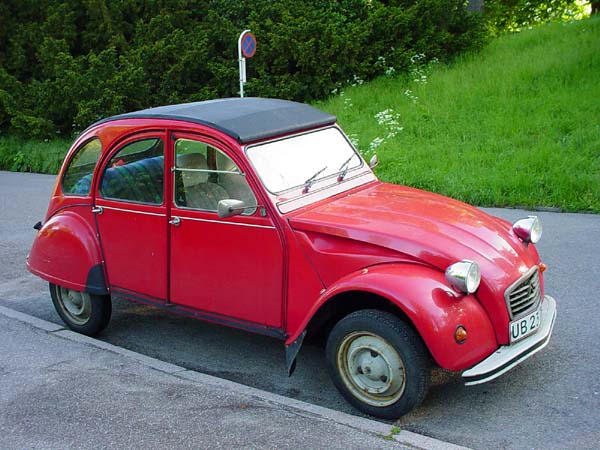
(exerpts of)
THE DRIVE
Kenneth DiMaggio
But down below was a landscape that a painter like Edward Hopper would appreciate. Fortunately, there was still a lot of the old industrial city left; homogenization in the form of strip malls and condo-plexes had only recently begun to bulldoze their presence, but most of the hilly streets were lined with big, wide, flat roofed clapboard shingled, three story houses. For each floor of them, there was a different color—one that did not contrast too much with the color above or below. One story might be green; the next one a pale lime, the top floor white. Each floor also had a porch with thick baseball bat shaped banisters –though most of the porches were empty. They did not have the lawn chairs and stuffy broken couches on them as they did when I was a kid, and when my grandmother was still alive and owned one of these three family tenements. Another quirk that they had were heavy mahogany doors with tall oval glass curtained windows; doors that reminded me of old haunted funeral homes. When I was a paperboy, I was always a bit afraid to ring the doorbells to such houses in order to collect money for the newspaper. I always imagined that a skeleton or ghoul was about to pull back just a slip of that curtain to see who was at the front door! Unfortunately, no ghosts ever came to greet me, only stooped, potato skinned old people who took forever digging butter colored bony fingers into a purse in order to pull out the right amount of pennies, nickels, and odd dime to pay me.
Some of the other blue collar institutions that held up this community were still there, liked the Roman Catholic church; this one named after some Slavic saint or martyr whose name I could never pronounce. Like the church I was looking at now. It had a girth similar to the clapboard houses and factories. It was a short and wide and brick A-framed; no fancy spires for St. Stashu’s. What this church did have were long wide steps. For the kids in the neighborhood back then, the steps were a cool place to hang out. If you were ballsy enough, you would light up a cigarette and smoke it in front of what was for you the whole damn world. For the most part, that included the priest and the cops: they were the ones always coming by to tell ya to “Beat it before you get arrested for loit’ring.” Recently, the steps have become a marketplace for dealers at nights. Each morning leaves a dew of crack vials on these steps.
There was hardly any other life that walked up that concrete. There had not been a marriage at St. Stashu’s for at least a generation; as for funerals, even they were becoming scarce. The last generation to faithfully attend church were just about depleted. St. Stashu’s should have been closed yesterday. What few, frail, veiled old women who still came during the day to pray, had less time to live than the number of beads on their rosaries.
The few brick turreted and cylinder’d factories should have also been knocked down a decade ago. Because they were not, is why the acid of Time started doing its job. Some of the bricks were loose and crumbling, and sections of a factory wall were now a buckled, uneven surface. Picture a pile of unevenly stacked shoe boxes. Most of these factories’ dark copper colored windows had been smashed: even the graffiti was faded and archaic. “Iron ButterÉ” was one of the tags you could make out. Iron Butterfly. A hard rock 60s group that had one great song: “In a Gadda- Da Vida,” before being sent to the scrap music metal heap. In the corner, a tin sign with an inverted pyramid of three small black upside down triangles against a yellow circle: the symbol for a fallout shelter. When the Russians dropped their atom bomb on this city, we would all run for safety to this factory basement. The only thing permanent—at least in the plant I was focusing on—was a black iron gate hinged before a bricked up arch doorway. The metal or wood “For Lease” sign placed across the bars now just said: “For”. The last word that would ever come from this structure. This factory would either fall completely down, someone would finally knock it down, or some kids would burn it down. Until then, it would just have to be a structure without any purpose.
At least I was not the only one driving a ten or more year old car that was about to fall apart. There was an over due mothballed fleet of such vehicles in this city. And from the top of Holy Land, you saw how they lined the streets like a tin, broken, old toy train. Even when they were no longer running, their owners still hung on to them, placing these tireless corroded hulks on cinder blocks in the backyard or behind a rotting shingle-less garage. How could their owners part with such craft? These old V-8 cars were more than just a means to get from Mall A to Mall B: these old cars were the pride of the country in the same way the old sailing ships were the pride of the British navy. How it must have hurt the old sailors who saw their ship being towed out to sea by the new practical steam ship, and once out to sea, the four masted warrior would be burned—just like the English painter Turner depicted it, but in this small city, it was hard for the old sailors to scuttle their no longer sea worthy grand vessels.
Let old retired Stashu hang on to his Pontiac Catalina or Buick Regal for as long as he wants: the post modern had already come to this city that was still wrestling with the modern. And the post modern came in these orange and white windowless and probably bomb proof and time proof, public self storage units. There was now a honeycomb-like labyrinth made up of them: a maze that began to intersect through this city. Why the need for so many of these spaces? Today, things were supposed to be obsolescent: if you were not “hip” to the new model, then you fell behind, became stuck; started to rot, like this old city. The answer to this post-modern puzzle might be better found in the horror that was discovered in one of these plastic boxes. Long after the lease on one expired, the manager opened it up. He discovered the bagged remains of several dismembered bodies that were never identified. Neither were the police ever able to trace the owner; who used a fictitious name along with credentials that could never be traced. No one seemed scared though about a serial killer being loose in Rustville. What need to feel danger “lurking” in these streets? You could have lived right next door to the space where this gruesome butchery was going on. But because you could not see it, or even smell it—and because the terror taking place was safely sealed within its own world, well then, you might as well have been living at the other end of the continent from this plastic box where human beings were becoming anonymous dismemberment.
I disdainfully shook my head.
Yes, it was my city, and I thought I knew it, just like I also thought it was mine to dispose of. Yet in spite of such smugness and arrogance, I also knew that I was the one being disposed of, and if so, I should count myself lucky.
The truth? I was not so much disposed of as I was, well, someone who could not let go—I wanted to embrace everything!
But most of what was now everything, was in decay. And that is why most of what I held and tried to bring to my soul was broken glass, rubble, rusted twisted steelÉno longer blinking and left behind words or images that would always seem dead.
“A penny for your thoughts?” I heard her say.
“That’s still too much,” I said.
“Well, you could give them away,” she said, “the same way that you do with your poetry that you photocopy onto small stapled books.”
“Thanks for reminding me,” I said.
“Hey, the best stuff in life is either stolen or free,” she said. “And I bet you that church is.”
“What church?” I asked.
She pointed to a church, but different from the one I had been previously looking at.
“That one over there,” she said, pointing to the left of her.
The church she pointed at was gray, and had two flat-topped towers on both sides of a wide peaked front. Sort of like a cathedral but smaller. So what was the big deal? It was just one more church attended by a few, bony, black veiled old immigrant ladies.
She giggled.
“You don’t recognize it, do you,” she said.
“Actually, I do,” I said. “It’s where I made my First Communion, which is why I prefer to forget it.”
“That church where you made your First Communion,” she said with a trace of haughtiness, “I learned about in my Art History class.”
I turned to her and raised an eyebrow.
“That church is a replica of Notre Dame—the big medieval cathedral in Paris.”
“Yeah, yeah, I know what you’re talking about.”
Well, sort of. I knew about the cathedral from Victor Hugo’s novel—well, actually, from the cartoon movie made about the novel.
But now that I had seen the movie, I am definitely going to read the book.
“You’ve not been to Paris?”
“I don’t think my car will make it that far,” is how I gently explained my ‘challenged traveling experiences.’
“Oh, I’m sorry,” she said with embarrassment. “I just thought that since you were a writer and all, you—“
She stopped herself from “stepping” into more embarrassment. It was kind of cute and refreshing to see that things had not changed when I was a Freshman, and being a drinking, Paris-based writer like Hemingway is a cliché I would not mind living—at least the latter part. The drinking, well, a beer or two a day would be good enough. No need to do anymore, and I am sure Paris would be great (after all, it was where some of the greatest writers ever deteriorated in, like Rimbaud and Baudelaire, and that literary serial killer, Lautreamont). But I would be happy just to have a futon or a couch in New York.
“If I’ve been there, it’s only because of a school trip,” she tried to explain.
“That’s okay, you don’t have to apologize,” I said.
“For me, the best part of that city was, wellÉ”
She giggled.
“Sort of what you have right here. A big hill where you could see the whole city. Only there, there’s a big fat basilica called Sacre Couer, or Sacred Heart.”
“And on top of this hill here is a work of art called Holy Land,” I said
She nodded in agreement.
“But Paris didn’t have anything like that old train yard,” she said.
I looked in the direction she was pointing. This yard was at the edge of town; in a shallow crater about half a mile wide, were a dozen or so bronze or rancid yellow freight cars. Some of them were sinking into the ground, some of them were standing crooked. At one end were two or three yellow cabooses; at the other end, two old red Pullman passenger cars that looked like a slice of an art deco skyscraper turned sideways and put on wheels. Part of this crater was surrounded by a half dead, leafless forest.
The other side was a small complex of several small, factory-like buildings.
“That’s not a railroad station,” I said. “That’s a scrap yard.”
“Oh,” she said, and in a tone of disappointment.
“But we can go there too,” I said, trying to be hopeful. “I’ve still got a few hours.”
“And then you become sober?” The Young Artist said.
“Funny,” I said, “but it’s because I ain’t drunk—I mean wild, screaming, dangerous drunk, that I’ve got to leave here. People on this toxic surface drink to live. But I want to drink for a reason, that at the very least, has no purpose whatever.”
She slowly nodded, as if she was being careful not to break the delusion of a mad man. Oh well, I would not harm her or snap in any way. I might insult her though. Go ahead. Push my buttons, and I’ll call you a Republican.
“Sounds like a plan,” she said. She mockingly rolled her eyes—there was a sign of playfulness in her mockery.
I smiled and in that smile, owned up to all the holes in the boat with which I was about leave land.
“It’s more than a plan,” I said. “It’s a vision. I’m going to New York City, where my friend has a loft above a drag queen bar in the East Village. And in this loft, there is at least one futon that is not broken. And if there isn’t, there’s a couch that I can sleep on.”
She slowly shook her head.
“I don’t know,” she said. “Sounds like a’drink-to-live’ situtation to me.”
“It is not,” I quickly explained. “It’s an urgent need to create and perform because every other week this loft becomes a performing space called ‘Café Nico’”.
“Café Nico?”
“Yeah, named after this dead, fucked up junkie singer—and during some of these readings and performances—damn—you don’t need to drink or smoke anything with the way a poet or performer can suddenly make the room feel as if it had been sprinkled with midsummer’s night dust.”
“As in Shakespeare?” she asked, a bit confused.
“As in Puck—and all those animals and creatures in a dream within the dream—as in the imagination of a great artist called Shakespeare. But don’t worry. I’m also practical. Within a couple of days of living on my friend’s futon—“
“Or couch,” she interrupted.
“Let’s think positive here. Yes, after a couple of days, I’m going to go out and get a serious temp job as a waiter or word processor while I write about my own dreams under the influence or I mean inspiration of midsummer night’s dust. So whattiya think. Sound like a plan?”
She slightly “frowned” up her lips as if to say, maybe, maybe not, and then asked:
“What’s ‘midsummer night’s dust?”
“I don’t know,” I replied, because I had not thought of it before, but now that I had: “It’s whatever poison or sweetness inspires you. For me, part of it are things like Holy Land.”
“What about your car?” she asked. “You think it will make it to New York City?”
My front teeth made a quick bite of my lower lip.
“This car is still tough and has some bite, and things that are tough and have bite will at least make it to The Bronx. What about you? I know you’re tough, and if you don’t bite—well, the way you’re looking at me, you probably do. A-Hem!”
I quickly cleared my throat as a way to underscore the frown that was starting to burn across her face. Hey, it’s not often you can make a nice playful dig at a vampire.
“But you must have some of that midsummer’s night’s dust,” I continued. “Don’t tell me you don’t have any of that mid-summer night’s dust—all that frolicking stuff. I know you do. But have you got any impractical dreams?”
She nervously giggled and said in a slightly apologetic tone:
“I wouldn’t call what you’re doing impractical, but—I don’t know. Maybe I want to teach—don’t laugh—but to little kids—but not—with coffins.”
“You would not teach them how to make little coffins?”
“No!” she said, looking at me as if I was crazy, and then added:
“I don’t know—who knows—as it is, I’m missing class!”
“Don’t blame me,” I quickly said.
“But—now that I’ve gotten to see some of Holy Land, I’d like to build my own—well, maybe not Holy Land—but some crazy little world like this where people can come to and just, well, until we can come up with a better world.”
“Personally, I don’t think that’s a bad idea. And maybe I should write a book like that,” I said. “Or better yet, I write the book version of your sculpture land—or whatever it is you’re going to sculpt.”
“Hm—I like that. But what kind of world is this going to be?”
“Hmmm, that’s a lot to think about without having breakfast. I at least need a cup of coffee before I think about creating anything on an epic scale.”
Her mouth began to make an uneasy squish.
“I don’t know,” she uneasily said. “It all depends what breakfast is. For one thing, I’ve a vegan.”
Great, I thought to myself. A vegan vampire. I would love to bite you on the neck, but I am afraid if I do, it will mean that that I am eating meat. And I can’t do that, because I am a vegan. No wonder nobody could get a bona-fide evil pagan bonfire going. Ahh, don’t be so hard on her, just because her plans don’t include a couch—I mean, a futon like yours. Maybe she had the realistic idea. Forget vampires and lofts and for that matter, religion, politics, and all that other junk. At least in the way those things have always been. Create your own world and if possible, make it out of the junk. If I was convinced of anything (yet without still being able to fully articulate it) a world built on material that has been already been thrown away, was a world that was going to have more durability than the one most people on that interstate were guzzling their lives in such a hurry to get .
But first we had to get out of Holy Land and the neighborhood it was in.
Well, she would make it to the car. I felt confident about making a quarter mile walk to a destination without any coffee. My worry was the car itself: would it be able to go? Not just down this small mountain, but to the diner, a few other stops, and eventually New York City. In addition to all that, my vehicle had a new mission: it would be a craft used to help discover materials for a still un-defined art project.
The Young Artist was ready to embark. She was also intrigued by my car.
“Ut-uh,” I said to her. For as soon as we had gotten to the car, she smiled and even made a happy ‘squeak’ as she saw what potential treasures my car might yield. She frowned, but I still did not give in. My mess still had a method to it and I would have to know a woman for more than twenty minutes before she has the right to clean up that mess. Nevertheless, after she had settled into the front seat, she leaned over it and began rummaging through the back.
“You’re not using anything in my car as material for your art project.”
“Oh, come on,” she said.
“Because for one thing, my unfinished novel is back there, and that’s not junk—at least not yet.”
“Then why do all the pages have all this different writing—and none of the pages seem to be in order.”
“That’s because—“
I started the car and gave the pedal a heavy throttle—more to keep myself from hearing me swear than her.
“Everyone who hops on board decides to do a little editing or adding to the great American failure in progress.”
It was too late. She was already reading and was soon scribbling with a pencil she plucked from who knows where.
—well, she seemed intensely drawn in to whatever she was reading—or writing.
It was the latter from the way her pencil started furiously moving and then suddenly stopped. And then started. It was hard to tell while I was driving; hard to tell if she now had a small smile of embarrassment or delinquent delight; probably the latter; or that is what I hoped. At least for this manuscript. Who cared if it never had an obvious plagiarist’s chance of ever becoming the Great American Novel? If my literary chaos, degeneration, and forgery served as a narrative that invited vandalism, well then hell, I had accomplished something in the arts after all. Maybe it would inspire others to go and vandalize even better books than mine. Why not. They are all dead: books died a long time ago. The only difference is that the ones that are big, ugly, and INTIMIDATING monuments make everyone afraid to say Boo! Everyone walks lightly around the great classic or the popular book of the microsecond sold to you as a classic on the talk show. But as soon as someone pops open the laptop, so much for the great obelisk known as The Book.
The young artist had the right idea about vandalizing my manuscript (at least that is what I hoped she was doing). It is pretty hard to graffiti a work in progress that everybodyÉ.Who knows? Eventually such a mess might become a great work of ruins; sort of like Holy Land.
I don’t know if she was vandalizing my book, but it did seem inspiring. Whatever she and anybody else did to my five hundred plus pages in the back seat could only help it.
The same way the rust, decay, graffiti, and discarded syringes helped the Williamsburg Bridge connecting the lower part of Manhattan become a great piece of post industrial art.
But how could such a brilliant and adventurous mind like hers be in awe of Notre Dame cathedral? Well, there was still the rest of the morning to put some “bad” into her good taste.




|
Nick DiSpoldo, Small Press Review (on “Children, Churches and Daddies,” April 1997)
Kuypers is the widely-published poet of particular perspectives and not a little existential rage, but she does not impose her personal or artistic agenda on her magazine. CC+D is a provocative potpourri of news stories, poetry, humor, art and the “dirty underwear” of politics.
One piece in this issue is “Crazy,” an interview Kuypers conducted with “Madeline,” a murderess who was found insane, and is confined to West Virginia’s Arronsville Correctional Center. Madeline, whose elevator definitely doesn’t go to the top, killed her boyfriend during sex with an ice pick and a chef’s knife, far surpassing the butchery of Elena Bobbitt. Madeline, herself covered with blood, sat beside her lover’s remains for three days, talking to herself, and that is how the police found her. For effect, Kuypers publishes Madeline’s monologue in different-sized type, and the result is something between a sense of Dali’s surrealism and Kafka-like craziness.
| |
Debra Purdy Kong, writer, British Columbia, Canada
I like the magazine a lot. I like the spacious lay-out and the different coloured pages and the variety of writer’s styles. Too many literary magazines read as if everyone graduated from the same course. We need to collect more voices like these and send them everywhere.
|
Ed Hamilton, writer
#85 (of Children, Churches and Daddies) turned out well. I really enjoyed the humor section, especially the test score answers. And, the cup-holder story is hilarious. I’m not a big fan of poetry - since much of it is so hard to decipher - but I was impressed by the work here, which tends toward the straightforward and unpretentious.
As for the fiction, the piece by Anderson is quite perceptive: I liked the way the self-deluding situation of the character is gradually, subtly revealed. (Kuypers’) story is good too: the way it switches narrative perspective via the letter device is a nice touch.
| |
Children, Churches and Daddies.
It speaks for itself.
Write to Scars Publications to submit poetry, prose and artwork to Children, Churches and Daddies literary magazine, or to inquire about having your own chapbook, and maybe a few reviews like these.
|
Jim Maddocks, GLASGOW, via the Internet
I’ll be totally honest, of the material in Issue (either 83 or 86 of Children, Churches and Daddies) the only ones I really took to were Kuypers’. TRYING was so simple but most truths are, aren’t they?
| |
what is veganism?
A vegan (VEE-gun) is someone who does not consume any animal products. While vegetarians avoid flesh foods, vegans don’t consume dairy or egg products, as well as animal products in clothing and other sources.
why veganism?
This cruelty-free lifestyle provides many benefits, to animals, the environment and to ourselves. The meat and dairy industry abuses billions of animals. Animal agriculture takes an enormous toll on the land. Consumtion of animal products has been linked to heart disease, colon and breast cancer, osteoporosis, diabetes and a host of other conditions.
so what is vegan action?
We can succeed in shifting agriculture away from factory farming, saving millions, or even billions of chickens, cows, pigs, sheep turkeys and other animals from cruelty.
We can free up land to restore to wilderness, pollute less water and air, reduce topsoil reosion, and prevent desertification.
We can improve the health and happiness of millions by preventing numerous occurrences od breast and prostate cancer, osteoporosis, and heart attacks, among other major health problems.
A vegan, cruelty-free lifestyle may be the most important step a person can take towards creatin a more just and compassionate society. Contact us for membership information, t-shirt sales or donations.
vegan action
po box 4353, berkeley, ca 94707-0353
510/704-4444
|
C Ra McGuirt, Editor, The Penny Dreadful Review (on Children, Churches and Daddies)
CC&D is obviously a labor of love ... I just have to smile when I go through it. (Janet Kuypers) uses her space and her poets to best effect, and the illos attest to her skill as a graphic artist.
I really like (“Writing Your Name”). It’s one of those kind of things where your eye isn’t exactly pulled along, but falls effortlessly down the poem.
I liked “knowledge” for its mix of disgust and acceptance. Janet Kuypers does good little movies, by which I mean her stuff provokes moving imagery for me. Color, no dialogue; the voice of the poem is the narrator over the film.
| |
Children, Churches and Daddies no longer distributes free contributor’s copies of issues. In order to receive issues of Children, Churches and Daddies, contact Janet Kuypers at the cc&d e-mail addres. Free electronic subscriptions are available via email. All you need to do is email ccandd@scars.tv... and ask to be added to the free cc+d electronic subscription mailing list. And you can still see issues every month at the Children, Churches and Daddies website, located at http://scars.tv
|
Mark Blickley, writer
The precursor to the magazine title (Children, Churches and Daddies) is very moving. “Scars” is also an excellent prose poem. I never really thought about scars as being a form of nostalgia. But in the poem it also represents courage and warmth. I look forward to finishing her book.
| |
MIT Vegetarian Support Group (VSG)
functions:
* To show the MIT Food Service that there is a large community of vegetarians at MIT (and other health-conscious people) whom they are alienating with current menus, and to give positive suggestions for change.
* To exchange recipes and names of Boston area veg restaurants
* To provide a resource to people seeking communal vegetarian cooking
* To provide an option for vegetarian freshmen
We also have a discussion group for all issues related to vegetarianism, which currently has about 150 members, many of whom are outside the Boston area. The group is focusing more toward outreach and evolving from what it has been in years past. We welcome new members, as well as the opportunity to inform people about the benefits of vegetarianism, to our health, the environment, animal welfare, and a variety of other issues.
|
Gary, Editor, The Road Out of Town (on the Children, Churches and Daddies Web Site)
I just checked out the site. It looks great.
| |
Dusty Dog Reviews: These poems document a very complicated internal response to the feminine side of social existence. And as the book proceeds the poems become increasingly psychologically complex and, ultimately, fascinating and genuinely rewarding.
|
John Sweet, writer (on chapbook designs)
Visuals were awesome. They’ve got a nice enigmatic quality to them. Front cover reminds me of the Roman sculptures of angels from way back when. Loved the staggered tire lettering, too. Way cool.
(on “Hope Chest in the Attic”)
Some excellent writing in “Hope Chest in the Attic.” I thought “Children, Churches and Daddies” and “The Room of the Rape” were particularly powerful pieces.
| |
Dusty Dog Reviews: She opens with a poem of her own devising, which has that wintry atmosphere demonstrated in the movie version of Boris Pasternak’s Doctor Zhivago. The atmosphere of wintry white and cold, gloriously murderous cold, stark raging cold, numbing and brutalizing cold, appears almost as a character who announces to his audience, “Wisdom occurs only after a laboriously magnificent disappointment.” Alas, that our Dusty Dog for mat cannot do justice to Ms. Kuypers’ very personal layering of her poem across the page.
|
Cheryl Townsend, Editor, Impetus (on Children, Churches and Daddies)
The new CC&D looks absolutely amazing. It’s a wonderful lay-out, looks really professional - all you need is the glossy pages. Truly impressive AND the calendar, too. Can’t wait to actually start reading all the stuff inside.. Wanted to just say, it looks good so far!!!
| |
Fithian Press, Santa Barbara, CA
Indeed, there’s a healthy balance here between wit and dark vision, romance and reality, just as there’s a good balance between words and graphics. The work shows brave self-exploration, and serves as a reminder of mortality and the fragile beauty of friendship.
Mark Blickley, writer
The precursor to the magazine title (Children, Churches and Daddies) is very moving. “Scars” is also an excellent prose poem. I never really thought about scars as being a form of nostalgia. But in the poem it also represents courage and warmth. I look forward to finishing her book.
You Have to be Published to be Appreciated.
Do you want to be heard? Contact Children, Churches and Daddies about book or chapbook publishing. These reviews can be yours. Scars Publications, attention J. Kuypers. We’re only an e-mail away. Write to us.
|
Brian B. Braddock, Writer (on 1996 Children, Churches and Daddies)
I passed on a copy to my brother who is the director of the St. Camillus AIDS programs. We found (Children, Churches and Daddies’) obvious dedication along this line admirable.
| |
The Center for Renewable Energy and Sustainable Technology
The Solar Energy Research & Education Foundation (SEREF), a non-profit organization based in Washington, D.C., established on Earth Day 1993 the Center for Renewable Energy and Sustainable Technology (CREST) as its central project. CREST’s three principal projects are to provide:
* on-site training and education workshops on the sustainable development interconnections of energy, economics and environment;
* on-line distance learning/training resources on CREST’s SOLSTICE computer, available from 144 countries through email and the Internet;
* on-disc training and educational resources through the use of interactive multimedia applications on CD-ROM computer discs - showcasing current achievements and future opportunities in sustainable energy development.
The CREST staff also does “on the road” presentations, demonstrations, and workshops showcasing its activities and available resources.
For More Information Please Contact: Deborah Anderson
dja@crest.org or (202) 289-0061
|
Brian B. Braddock, WrBrian B. Braddock, Writer (on 1996 Children, Churches and Daddies)
Brian B. Braddock, WrI passed on a copy to my brother who is the director of the St. Camillus AIDS programs. We found (Children, Churches and Daddies’) obvious dedication along this line admirable.
| |
Dorrance Publishing Co., Pittsburgh, PA
“Hope Chest in the Attic” captures the complexity of human nature and reveals startling yet profound discernments about the travesties that surge through the course of life. This collection of poetry, prose and artwork reflects sensitivity toward feminist issues concerning abuse, sexism and equality. It also probes the emotional torrent that people may experience as a reaction to the delicate topics of death, love and family.
“Chain Smoking” depicts the emotional distress that afflicted a friend while he struggled to clarify his sexual ambiguity. Not only does this thought-provoking profile address the plight that homosexuals face in a homophobic society, it also characterizes the essence of friendship. “The room of the rape” is a passionate representation of the suffering rape victims experience. Vivid descriptions, rich symbolism, and candid expressions paint a shocking portrait of victory over the gripping fear that consumes the soul after a painful exploitation.
want a review like this? contact scars about getting your own book published.
|
Paul Weinman, Writer (on 1996 Children, Churches and Daddies)
Wonderful new direction (Children, Churches and Daddies has) taken - great articles, etc. (especially those on AIDS). Great stories - all sorts of hot info!
| |

The magazine Children Churches and Daddies is Copyright © 1993 through 2006 Scars Publications and Design. The rights of the individual pieces remain with the authors. No material may be reprinted without express permission from the author.

Okay, nilla wafer. Listen up and listen good. How to save your life. Submit, or I’ll have to kill you.
Okay, it’s this simple: send me published or unpublished poetry, prose or art work (do not send originals), along with a bio, to us - then sit around and wait... Pretty soon you’ll hear from the happy people at cc&d that says (a) Your work sucks, or (b) This is fancy crap, and we’re gonna print it. It’s that simple!
Okay, butt-munch. Tough guy. This is how to win the editors over.
Hope Chest in the Attic is a 200 page, perfect-bound book of 13 years of poetry, prose and art by Janet Kuypers. It’s a really classy thing, if you know what I mean. We also have a few extra sopies of the 1999 book “Rinse and Repeat”, the 2001 book “Survive and Thrive”, the 2001 books “Torture and Triumph” and “(no so) Warm and Fuzzy”,which all have issues of cc&d crammed into one book. And you can have either one of these things at just five bucks a pop if you just contact us and tell us you saw this ad space. It’s an offer you can’t refuse...
Carlton Press, New York, NY: HOPE CHEST IN THE ATTIC is a collection of well-fashioned, often elegant poems and short prose that deals in many instances, with the most mysterious and awesome of human experiences: love... Janet Kuypers draws from a vast range of experiences and transforms thoughts into lyrical and succinct verse... Recommended as poetic fare that will titillate the palate in its imagery and imaginative creations.
Mark Blickley, writer: The precursor to the magazine title (Children, Churches and Daddies) is very moving. “Scars” is also an excellent prose poem. I never really thought about scars as being a form of nostalgia. But in the poem it also represents courage and warmth. I look forward to finishing the book.
You Have to be Published to be Appreciated.
Do you want to be heard? Contact Children, Churches and Daddies about book and chapbook publishing. These reviews can be yours. Scars Publications, attention J. Kuypers - you can write for yourself or you can write for an audience. It’s your call...

Dorrance Publishing Co., Pittsburgh, PA: “Hope Chest in the Attic” captures the complexity of human nature and reveals startling yet profound discernments about the travesties that surge through the course of life. This collection of poetry, prose and artwork reflects sensitivity toward feminist issues concerning abuse, sexism and equality. It also probes the emotional torrent that people may experience as a reaction to the delicate topics of death, love and family. “Chain Smoking” depicts the emotional distress that afflicted a friend while he struggled to clarify his sexual ambiguity. Not only does this thought-provoking profile address the plight that homosexuals face in a homophobic society, it also characterizes the essence of friendship. “The room of the rape” is a passionate representation of the suffering rape victims experience. Vivid descriptions, rich symbolism, and candid expressions paint a shocking portrait of victory over the gripping fear that consumes the soul after a painful exploitation.
|
Dusty Dog Reviews, CA (on knife): These poems document a very complicated internal response to the feminine side of social existence. And as the book proceeds the poems become increasingly psychologically complex and, ultimately, fascinating and genuinely rewarding.
Children, Churches and Daddies. It speaks for itself.
| |
Dusty Dog Reviews (on Without You): She open with a poem of her own devising, which has that wintry atmosphere demonstrated in the movie version of Boris Pasternak’s Doctor Zhivago. The atmosphere of wintry white and cold, gloriously murderous cold, stark raging cold, numbing and brutalizing cold, appears almost as a character who announces to his audience, “Wisdom occurs only after a laboriously magnificent disappointment.” Alas, that our Dusty Dog for mat cannot do justice to Ms. Kuypers’ very personal layering of her poem across the page.
Children, Churches and Daddies. It speaks for itself.
Debra Purdy Kong, writer, British Columbia, Canada (on Children, Churches and Daddies): I like the magazine a lot. I like the spacious lay-out and the different coloured pages and the variety of writer’s styles. Too many literary magazines read as if everyone graduated from the same course. We need to collect more voices like these and send them everywhere.
Fithian Press, Santa Barbara, CA: Indeed, there’s a healthy balance here between wit and dark vision, romance and reality, just as there’s a good balance between words and graphics. The work shows brave self-exploration, and serves as a reminder of mortality and the fragile beauty of friendship.
|
Children, Churches and Daddies
the unreligious, non-family oriented literary and art magazine
Scars Publications and Design
ccandd96@scars.tv
http://scars.tv
Publishers/Designers Of
Children, Churches and Daddies magazine
cc+d Ezines
The Burning mini poem books
God Eyes mini poem books
The Poetry Wall Calendar
The Poetry Box
The Poetry Sampler
Mom’s Favorite Vase Newsletters
Reverberate Music Magazine
Down In The Dirt magazine
Freedom and Strength Press forum
plus assorted chapbooks and books
music, poery compact discs
live performances of songs and readings
Sponsors Of
past editions:
Poetry Chapbook Contest, Poetry Book Contest
Prose Chapbook Contest, Prose Book Contest
Poetry Calendar Contest
current editions:
Editor’s Choice Award (writing and web sites)
Collection Volumes
Children, Churches and Daddies (founded 1993)
has been written and researched by political groups and writers from the United States, Canada, England, India, Italy, Malta, Norway and Turkey.
Regular features provide coverage of environmental, political and social issues (via news and philosophy) as well as fiction and poetry,
and act as an information and education source. Children, Churches and Daddies is the leading magazine for this combination of information,
education and entertainment.
Children, Churches and Daddies (ISSN 1068-5154) is published quarterly by Scars Publications and Design,
cations and Design. Contact us via e-mail (ccandd96@scars.tv)ian Court, Gurnee, IL 60031-3155 USA; attn: Janet Kuypers. Contact us via snail-mail or e-mail (ccandd96@scars.tv) for subscription rates
or prices for annual collection books.
To contributors:
No racist, sexist or blatantly homophobic material. No originals; if mailed, include SASE & bio.
Work sent on disks or through e-mail preferred. Previously published work accepted. Authors always retain rights to their own work. All magazine rights reserved. Reproduction of
Children, Churches and Daddies without publisher permission is forbidden.
Children, Churches and Daddies copyright Copyright © 1993 through 2006 Scars Publications and Design, Children, Churches and Daddies, Janet Kuypers. All rights remain with the authors of the individual
pieces. No material may be reprinted without express permission.
|
|
|

